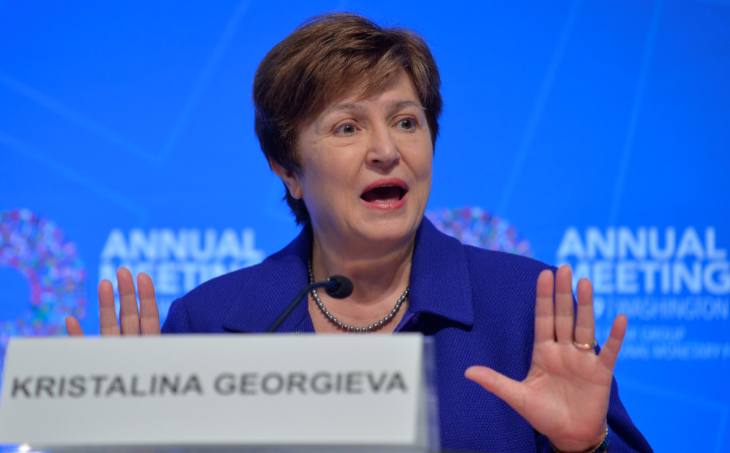At the International Monetary Fund and World Bank meetings in Washington, central bank governors and finance ministers all had their own stories of suffering economies.
There were also comparisons on how the US policy had changed from the 1940s when Washington co-founded the IMF.
World Bank President David Malpass said that during the 40s because the world economy had seen enough high tariffs, depression, and war, the message of the US was "There's no limit to the prosperity and shared prosperity benefits everyone."
IMF Managing Director Kristalina Georgieva said that with the current trade situation, "Everybody loses."
Fifteen months ago, the US, the largest importer, began a tariff war with China, the largest exporter.
Up until now, the US and China are negotiating.
IMF puts in the estimate of slowing global growth, as an effect, in 2019 to 3.0%.
This global growth is the slowest in a decade.
The US is the least unaffected when it comes to dropping exports because it has a huge domestic consumer market.
The European Union's Economic and Financial Affairs Commissioner Pierre Moscovici pointed out that the damage of the current trade situation is keenly felt in European countries because they "rely on exports."
In the case of Germany, more than 40% of the country's GDP, the most for any major global economy, was derived from exports in 2018.
Now, the German trade group BGA changed its growth forecast for German exports in 2019 to just 0.5%, from 1.5%.
The bad effects of trade issues are also being felt in countries that don't rely on exports like Iceland wherein tourism plummeted and is down 15.6% compared to last year's summer.
Likewise, Japan's Cabinet Office, which helps coordinate government policy, slashed its assessment of factory output for this month because car exports to the US are becoming weaker.
The US still gets a taste of its medicine with American farmers experiencing Chinese tariffs on US agricultural products making the US administration give billions in aid.
The steel and aluminum tariffs and the uncertainty of passing a new North American free trade deal, the United States-Mexico-Canada Agreement, have also stopped local economic development.
Ukur Yatani Kanacho, Kenya's acting cabinet secretary for treasury voiced out what African nations are doing, in coping with the trade issues, by creating a more self-reliant continent taking "it upon ourselves to grow trade among ourselves."
Abdoulaye Daouda Diallo, the finance minister of Senegal, said that trade tensions would cut funds available on financial markets and would affect African nations in the energy sector.
When it comes to the global pulse on putting this to an end, Mexican Finance Minister Arturo Herrera said that the former Great Recession caught everybody by surprise, but economies were willing to cooperate.
Herrera added that the global economic slowdown now "is taking nobody by surprise and yet there is very little appetite for cooperation."





